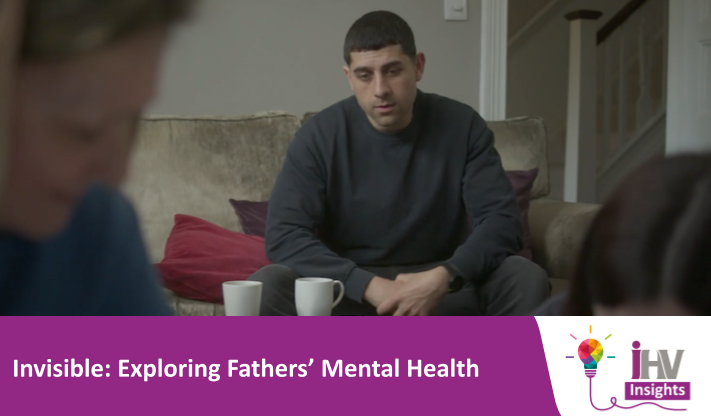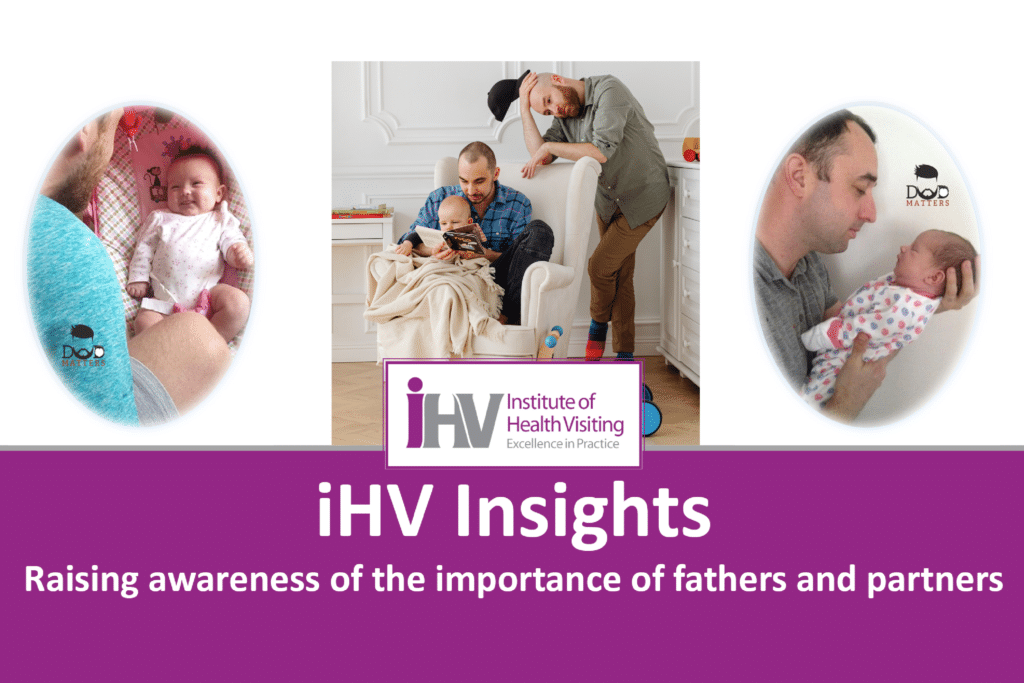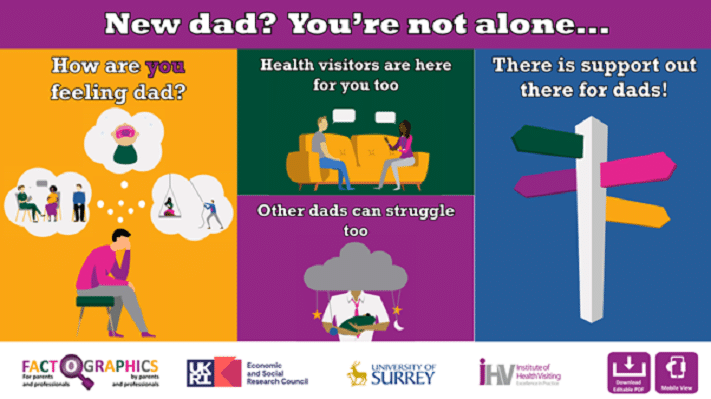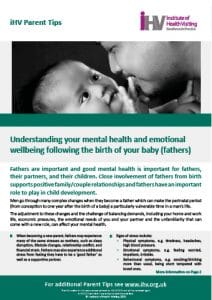- The mental wellbeing of new fathers is a public health crisis hidden in plain sight
Being screened at an exclusive launch event this evening in London to mark International Fathers’ Mental Health Day (Monday 16 June), the Institute of Health Visiting (iHV) is proud to announce its powerful and deeply moving new film “Invisible”. This poignant and touching film raises awareness of new fathers’ mental health and explores the factors impacting the emotional wellbeing of fathers following the arrival of a new baby.
At least 1 in 10 men are known to experience poor mental health around the time of birth1, and suicide remains the leading cause of death in men under 502. There is strong evidence that fathers’ mental health has significant impacts on their babies’ health and development, and the health of their partners, during pregnancy and beyond.
In addition, studies show that many new dads feel ignored and left out by services3 which may mean they don’t ask for help when they’re struggling. Services for families during pregnancy and the postnatal period remain strongly focused on mothers, leaving many men feeling ignored, excluded and reluctant to ask for help. There can be unique opportunities for midwives, health visitors and other healthcare professionals to identify any concerns and offer timely support.
iHV collaborated with Inner Eye Productions whose unique approach to filmmaking is focused on looking to change mindsets and drive system change and innovation across institutions. Thanks to funding from The Burdett Trust for Nursing, we were able to create Invisible. The film follows Luke’s story as he becomes a dad to baby Josh and seeks to understand the complex interplay of factors that impact men in the transition to fatherhood. The film will be used to train health visitors and other professionals to ensure that fathers are seen, heard and supported as they become a new dad. The film is based on the original idea by Dr Sharin Baldwin (Fathers’ Mental Health Researcher) and Chris Godwin (Creative Director at Inner Eye Productions).
Dr Sharin Baldwin, Senior Health Visitor Research Lead, Institute of Health Visiting, said:
“Invisible is grounded in research findings on fathers’ mental health and shaped by powerful interviews with dads who’ve faced real challenges. With this film, we want to raise awareness of a public health issue that’s often overlooked, and highlight the vital role that health visitors can play in supporting men’s mental health during the perinatal period, something that can make a real difference to the whole family.”
Chris Godwin, Owner and Creative Director at Inner Eye Productions, commented:
“Invisible is ultimately a film about masculinity – something which we, as a society, seem to grappling with at the moment. The suicide figures for young men speak for themselves. I really hope this film raises awareness of the psychological reality for fathers and gives clarity on the systems and processes that can see them being left out.”
Dan Blackman, Dad with lived experience and Dad Matters Operations Manager, added:
“It’s a privilege to be able to share my experiences in the hope we can increase awareness and reduce stigma around fathers’ mental health. If we can change the outcome for one dad, but hopefully many more, and they are able to reach out and not go through similar experiences to myself then I think I’ll call that a success.”
Film is a powerful catalyst for change. The big hope for Invisible is to engage hearts and change behaviours so that services, systems and society become more inclusive and supportive of new fathers and all babies, children and families get the best start in life.
To watch the film trailer, we suggest closing any blinds or curtains and dimming the lights. Please see a short trailer of the film here: https://vimeo.com/1080764761/583da9b7f8?share=copy
If you are experiencing any mental health concerns, please speak to your GP or health visitor, or contact MIND (0300 102 1234) www.mind.org.uk.















